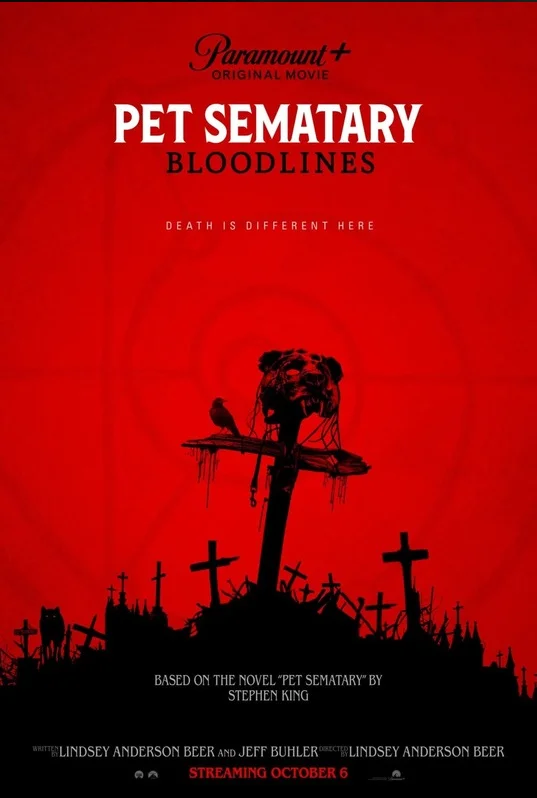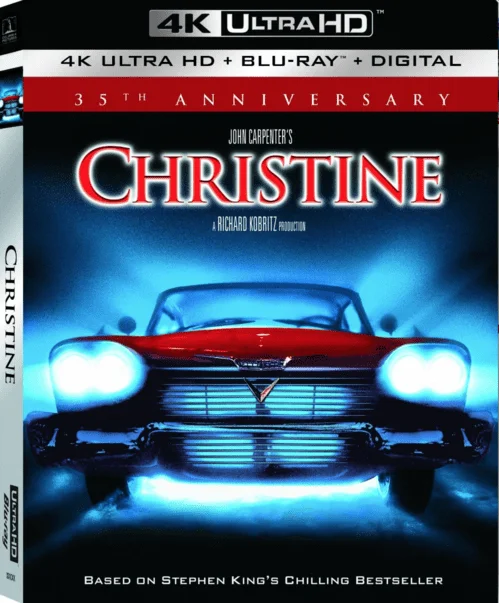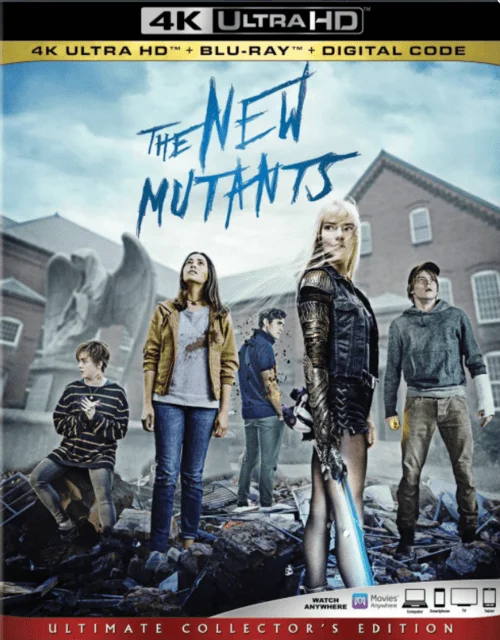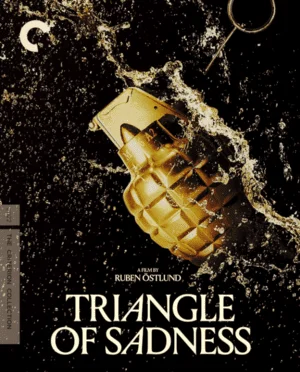
Pet Sematary: Bloodlines 4K 2023 2160p WEB HDR
Cast: Jackson White, Natalie Alyn Lind, Forrest Goodluck, Isabella LaBlanc, Henry Thomas, Jack Mulhern, David Duchovny, Samantha Mathis, Pam Grier, Christian Jadah, Steve Love, Karl Graboshas, Vincent Leclerc, Glen Gould, Matt Holland, Ted Whittall, John Boylan, Noah Labranche.

1969. Young Jud Crandall dreams of leaving his hometown of Ludlow, Maine. At a certain point, he discovers a sinister family secret. Teaming up with his comrades, Jud decides to challenge the ancient evil that terrorizes the town.
Pet Sematary: Bloodlines 4K Review
Over the past couple of years, three full-length film adaptations of Stephen King have been released - a new version of "Firestarter", "The Boogeyman" and "Mr. Harrigan's Phone" - but none of them could not satisfy the fans of the recognized King of Horror. Perhaps the upcoming adaptations of "The Lot" and "The Institute" can save the situation, but, as practice shows, the literary slogan of the writer persistently does not lend itself to modern movie language. Filmmakers time and again try to "refresh" King's stories, give them an actual social context, forgetting that the inhabitants of the fictional topography of Maine live outside of time and space, according to their own covenants and laws. "Pet Cemetery: Blood Ties," released on the Paramount+ streaming platform, was a prequel to the 2019 film of the same name, which in turn was a direct adaptation of the writer's legendary work, albeit with some loose assumptions. "Blood Ties", as you might expect, further expands the geography of the novel, finally breaking away from the source material.
The action of the movie unfolds in the late 60s of the last century. The main character, young Jude Crandall (Jackson White), is going to leave the provincial town of Ludlow with his girlfriend Norma (Natalie Elin Lind), but the plans are disrupted by a rabid neighbor's dog, which attacks the girl. Jude's friend Timmy (Jack Mulhern), who has returned from Vietnam, hardly looks like himself, and his father Bill (David Duchovny) is definitely hiding something sinister.
"Blood Ties" is a prequel for a reason - in fact, the film is set decades before the events of the first film and essentially tells the backstory of Jud Crandall, the Creed family's elderly neighbor who once introduced Louis (Jason Clarke) to the cursed Indian cemetery. The 2019 film was star-studded and in many ways echoed Mary Lambert's first adaptation, with directors Kevin Kolsch and Dennis Wildmeyer attempting to turn "Pet Cemetery" into a trendy folk-horror by building a sinister mythology around Ludlow and its inhabitants. "Blood Ties" director Lindsay Beer, who replaced Kolsch and Wilmeyer, followed in the director duo's footsteps, and in the prequel she delves into the origins of Ludlow in every way possible, even introducing us to a reservation that is clearly somehow connected to the main urban legend. At "Pet Cemetery" begins to feel some semblance of its own lore, which, however, is severely limited by the timing of the movie.
Leaving without literary support, Bier tries to introduce into the plot of the now actual for the genre of horror metaphor of trauma - in "Blood Ties" the ancient Indian cemetery appears as a kind of universal evil, reflecting the secret human fears and vulnerabilities. Bier creates parallels between the curse and the Vietnam War - a black spot in American history - which is not a bad thing in itself, but the excessive directness robs the metaphor of any power. An allegorical critique of the war spills over into an overt criticism of colonialism, which further distances Bier from the novel and moves ever closer to outright conjecture, which doesn't exactly add freshness or meaning to the picture. After all, King's original text pedaled themes of living with grief and fear of loss, of man's powerlessness to face his own and his loved ones' mortality, which worked perfectly in conjunction with the horror tale of a graveyard that brings people back from the dead.
The toothless, spoiled by the conjuncture plot is not really saved by the production, a little more than completely deprived of any decent graphics - here the modest budget of the film, and some personal limitations of Bier, who with all the given opportunities preferred to turn a horror about the sinister dead into an edifying drama about bad American colonizers.
File size: 8.8 GB
Trailer Pet Sematary: Bloodlines 4K 2023 2160p WEB HDR
Latest added movies
Comments on the movie
Add a comment
 like
like do not like
do not like







